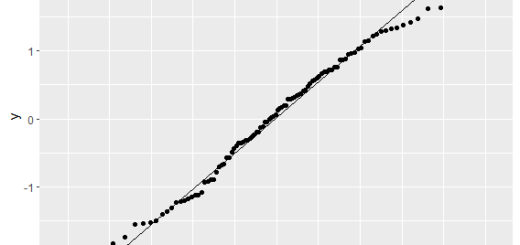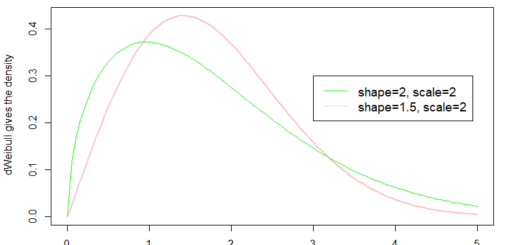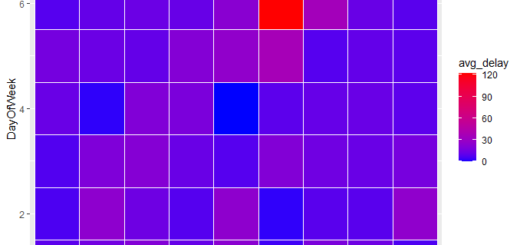Find out which data skills are most in demand?
Find out which data skills are most in demand and why organizations are looking for qualified people. Additionally, learn how to enhance your data literacy in important areas.
Required Data Skills
The data sector has a promising future. By 2027, the big data market is projected to grow to a global value of US$103 billion.
Additionally, there is a great need for employees who understand how to manage, analyze, and display data because an increasing number of businesses are basing their operations on it. Strong data abilities are therefore crucial for anyone looking to work in the sector.
Since the emergence of big data, there has been a growing demand for data experts. We’ve highlighted some of the most in-demand data skills in the market because this trend doesn’t appear to be slowing down anytime soon.
Frequently Asked Data Science Interview Questions »
1. Python Skills
Python is a well-liked open-source programming language that data professionals really must know how to use.
Python is the industry standard for data analytics. We can easily and quickly develop and manage data systems thanks to the language’s simple syntax.
Additionally, because so many people use the language for data processing, there are a lot of pre-made packages and frameworks accessible, negating the necessity for starting from scratch.
Examples of tools for manipulating, analyzing, and displaying complicated data sets and data structures include the well-known panda’s library.
We produce a lot of data, and it is now more crucial than ever to organize and manipulate it. Python just makes sense for data analytics, which is one of the reasons it’s a key component of the software stacks of many businesses.
When it comes to creating basic and interactive data visualizations, Python is a fantastic option. Again, there are many alternatives due to the diversity of libraries and packages.
2. SQL and NoSQL Skills
Although SQL has been around since the 1960s, its significance and current usefulness cannot be overstated. Emsi’s study indicates that there were 217,968 distinct job listings mentioning SQL in May 2021 alone.
Structured Query Language is known as SQL. This crucial component of the data sector performs a crucial function by enabling communication and relational database queries. SQL can be viewed as a database type as well as a language.
We require methods for efficiently storing the vast amounts of data that exist today and for retrieving information as needed. In businesses of all sizes and across all sectors, databases are the standard answer.
Both relational or SQL databases—which are organized based on how different data points relate to one another and non-relational or NoSQL databases, which are less organized but nonetheless able to handle significant volumes of complicated data, are available.
You must handle both sorts of databases, use SQL and its variations to query them, and gather information if you want to succeed in the data sector.
3. R Skills
R is a statistical powerhouse and the language of choice for academic research around the world. Due to its adaptability and usefulness in data-related tasks, it is also widely used in the data sector.
R may be used to explore, model, and visualize data. It was initially created by statisticians for statistical computation. Additionally, it can handle, store, analyze, and model statistical data.
Many machine learning engineers, data scientists, and analysts favor R as their language of choice.
Because of this, there are numerous packages and libraries that aid data professionals in their work and increase R’s functionality.
For instance, Revolution Analytics claimed that the Comprehensive R Analysis Network (CRAN), a public repository of R tools, has over 18166 packages.
The Pluralsight Technology Index, which compiles billions of data points each month to identify growth rates and the popularity of various digital tools and abilities, has R in the first place as of the time of writing (June 2022).
R talents are among the highest-paid in IT and data, in addition to being in demand.
4. Data Visualization Skills
Data specialists are responsible for extracting the secrets from the data and transforming them into comprehensible forms.
Data visualizations are graphic representations of data that assist us in distilling complex information into digestible, easy-to-read chunks.
In contrast to rows and columns of numbers, a well-presented dashboard or graphically compelling report has much more impact.
Visualizations are a great tool for analysis because they can show variations between variables and reveal patterns that are difficult to detect in tabular format.
The need for employees with data visualization skills is gradually growing as firms of all sizes and in all industries want someone who can effectively communicate data insights.
Data professionals employ a variety of tools, including Python, R, Tableau, Power BI, and spreadsheets, to present their findings in a visual way.
5. Machine Learning and Natural Language Processing (NLP) Skills
By 2029, it is expected that the market for machine learning will be worth an astonishing US$209 billion, and as a result, demand for individuals with these kinds of data abilities will rise.
According to data from 2020, only 12% of firms thought there was a sufficient supply of machine learning experts, whereas 82% of organizations needed workers with those skills.
It’s difficult to find a sector in today’s data-driven world that doesn’t use machine learning in some capacity. Machine learning is working behind the scenes to forecast ROI, calculate future inventory demands, and predict consumer behavior.
A growing area in the data industry is natural language processing (NLP), a branch of artificial intelligence (AI).
Data experts can quickly find what they’re looking for using NLP-based mining techniques because text includes a variety of important information.
Additionally, it means that computers can interpret text and logically organize data, enabling data analysts to efficiently evaluate vast amounts of textual data.
6. Amazon Web Services (AWS) and Cloud-Driven Computing Skills
Public and commercial businesses needed a sophisticated method of managing the vast amounts of information because they were gathering and storing more data than ever.
This method didn’t involve using enormous on-site servers (or the associated maintenance costs).
For many organizations, cloud-based services are the preferred option. Customers may gather an unprecedented amount of data in data lakes thanks to digital solutions like Amazon Web Services (AWS), which also come with built-in analytical capabilities.
Data professionals should engage in their understanding of cloud computing if they wish to match their data abilities to demand.
Of course, understanding the processes that businesses employ is not enough. It also has to do with your ability to scale your own data architecture and processes, which the cloud enables.
For instance, you might need more hardware power than your device can offer or you can’t accommodate a very large dataset in a local environment.
7. Extract, Transform, Load (ETL) Skills
The demand for data engineering expertise is rising. Data engineering was the profession with the strongest growth rate, even outpacing data science, according to DICE’s 2020 Tech Job Report.
The data engineering skill of extract, transform, and load (ETL) enables us to process massive data quickly.
You can create the data pipelines needed to collect data, transform it into the format you require, and then load it into data storage systems if you have ETL skills in your technological toolbox.
To compete in a data-driven environment, all businesses must have the ability to gather data from a variety of sources, both structured and unstructured, and make it usable and legible.
ETL was listed as a “key” skill in a poll of 1,600 data professionals conducted by 2022 Cord.
8. Statistics Skills
Although you don’t need a Master’s or Ph.D. in statistics or mathematics to work in data, it is crucial to have a firm grasp of a few basic ideas.
You can see that there is a large overlap between mathematical statistics and data science methods because statistics as a profession is about collecting, organizing, analyzing, and interpreting information.
Data professionals can construct “robustified” mathematical and statistical models and accurately comprehend the data they’re examining by understanding specific statistical concepts and methodologies.
Aim to have a working understanding of the significance, probability, hypothesis testing, and regression if you want to improve your math prowess.
For individuals working with AI technology, Bayesian thinking—a school of thought based on the idea of assessing and updating probability depending on fresh information or data—is particularly helpful.
9. AI Skills
Data workers can become analytics powerhouses who can compile and analyze massive data sets considerably more quickly than those working without AI aid by learning how to use and optimize AI-powered solutions.
According to ZDNet, there are over 10,000 AI and data science job openings each month. Many employers are seeking candidates who are knowledgeable in off-the-shelf solutions as well as deep learning and neural network architectures.
Data-industry mainstays like machine learning and NLP are included in the vast field of artificial intelligence, which encompasses any instruments and technologies that mimic human intelligence.
Process of a typical Data Analyst Interview »
Different Data Roles Require Different Skills
All data workers can benefit from the data abilities we’ve discussed so far, but some positions will call for in-depth expertise in particular areas.
For instance, you cannot be a machine learning engineer without having a firm grasp of machine learning.
Similarly, without a solid working understanding of SQL and NoSQL, it will be difficult for you to find employment as a database administrator.
On the other hand, for an entry-level position as a data analyst, you most likely won’t need sophisticated ETL abilities.
Conclusion
Data specialists are in high demand all over the world as the data industry is booming. You may discover more about the latest data opportunities from here.








